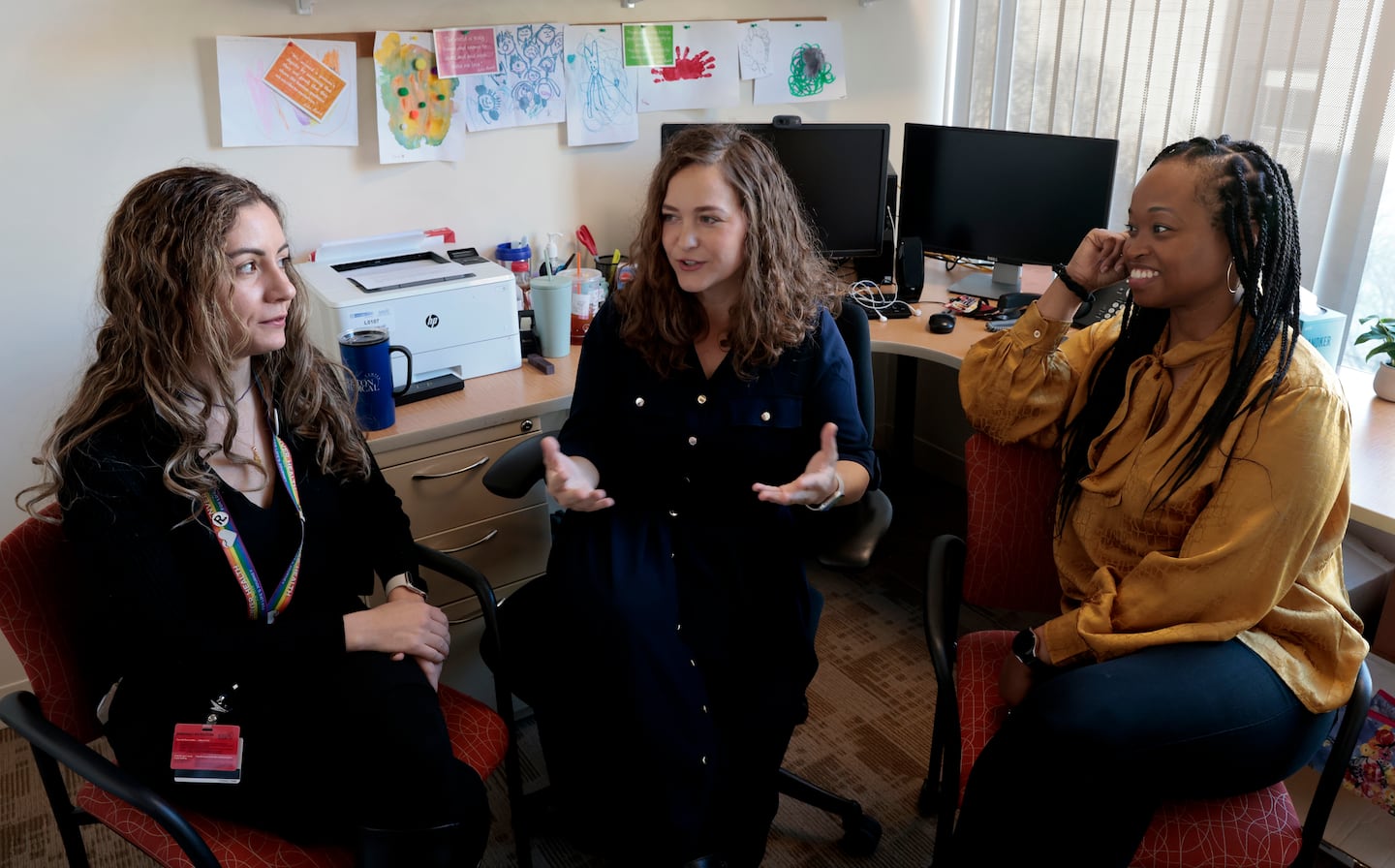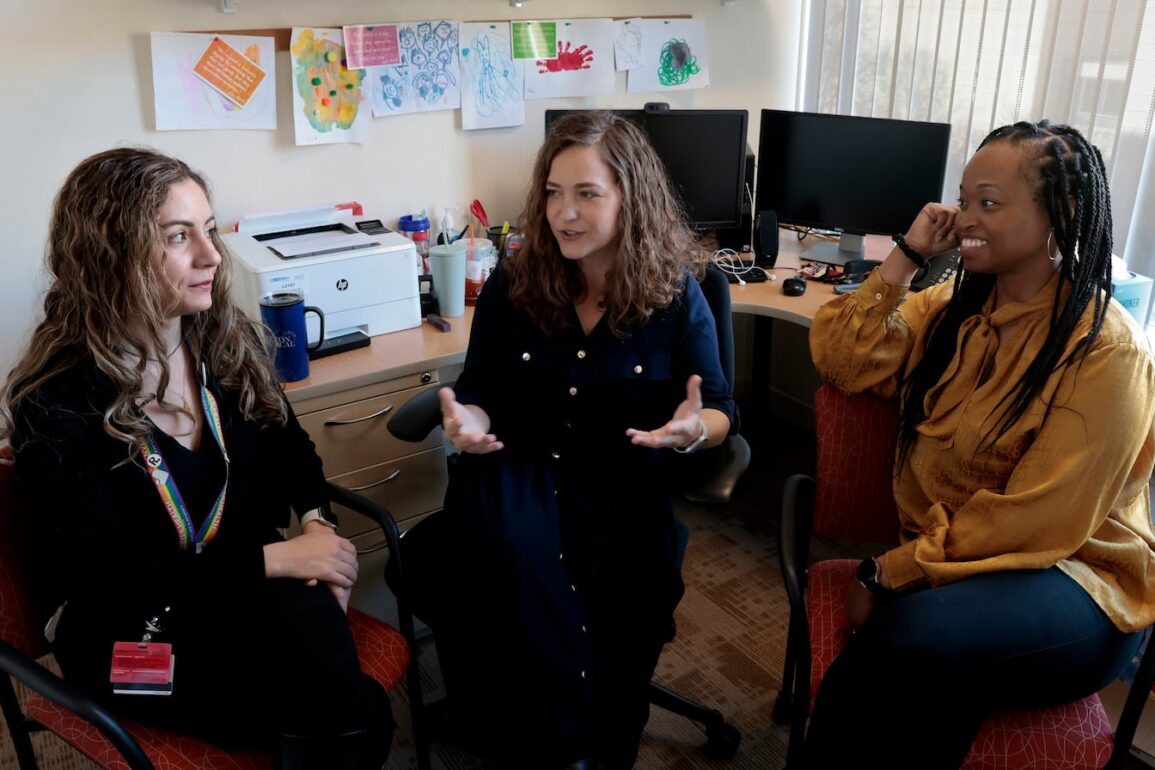
Clinicians at Boston Medical Center have been thinking a lot about one question: What is the emotional impact of racism? Oppression, they say, can disconnect people from their families, communities, ancestors, and even themselves.
So BMC worked with churches in Roxbury and Milton to pilot a Black wellness group called Reconnect to help patients understand and handle the mental impacts of racism. During eight sessions, program facilitators explained how trauma and oppression can manifest in a person’s life.
One session, for example, details how racism can harm families through the carceral system, the foster care system, and other systems that separate families and are impacted by systemic discrimination, said Nuha Alshabani, Reconnect co-developer and BMC clinical psychologist specializing in culturally responsive and trauma-focused treatment.
“Folks talked about how helpful that was in a variety of ways to them to give language to something they’ve been experiencing their whole lives,” Alshabani said. “And now they can better articulate it with their family, with their friends, with their other providers, as well as the validation that that is a real thing that’s happening.”
The need for such training and group therapy is necessary, experts say. About 80 percent of Black Americans say they have been discriminated against based on their race, according to a 2021 Pew Research Center study. Oppression based on a person’s identity, the National Library of Medicine found, can harm their mental health.
Program facilitators taught participants coping skills, such as progressive muscle relaxation, self-compassion, and deep breathing. They also shared with patients ways to advocate for themselves by knowing their rights and how to navigate the health care system.
As part of the pilot program, 18 people participated across two groups at BMC and one group at Twelfth Baptist Church. Upon completion, participants in one of the groups reported having better coping skills and feeling less stigma around seeking mental health care.
Devin Cromartie Bodrick, first lady of Twelfth Baptist Church and Reconnect co-developer, worked with her church, St. John Missionary Baptist Church, and Roxbury Presbyterian Church to conduct focus groups and interviews with congregants. Their findings and takeaways helped to inform the program’s creation.
“Findings from that project, there were a number of them. I would say the most important, in regards, to this project was the importance of race-based stress and trauma,” said Cromartie Bodrick, who is also a psychiatrist at BMC. “When we say that we have these groups about race-based stress, people in our congregation very much so identify with being stressed because of racism.”
Cromartie Bodrick said she is developing a mental health ministry that will continue Reconnect’s work in churches. BMC plans to expand the program for patients who are a part of the Latino, LGBTQ+, and Black migrant communities. The group is already working with Total Health Christian Ministries in Milton, a church that serves Haitian immigrants.
For migrants, specifically, emotional capacity is often stretched thin, experts say, as travel to the United States can be mentally and physically taxing. Even after arriving in states such as Massachusetts, many struggle to secure adequate housing and find themselves living in short-term shelters, and in some cases on the street.
“We really can think about the way in which people are not individually fitting into boxes and having some capacity to talk about both sexual orientation and race in the same space,” Valentine said. “We want to be able to have that as part of the program that we’re developing where you can really tailor it to individuals with multiple minoritized identities.”
Correction: An earlier version of this story said Boston Medical Center was working with four churches in Roxbury.
This story was produced by the Globe’s Money, Power, Inequality team, which covers the racial wealth gap in Greater Boston. You can sign up for the newsletter here.
Lauren Booker can be reached at lauren.booker@globe.com.


